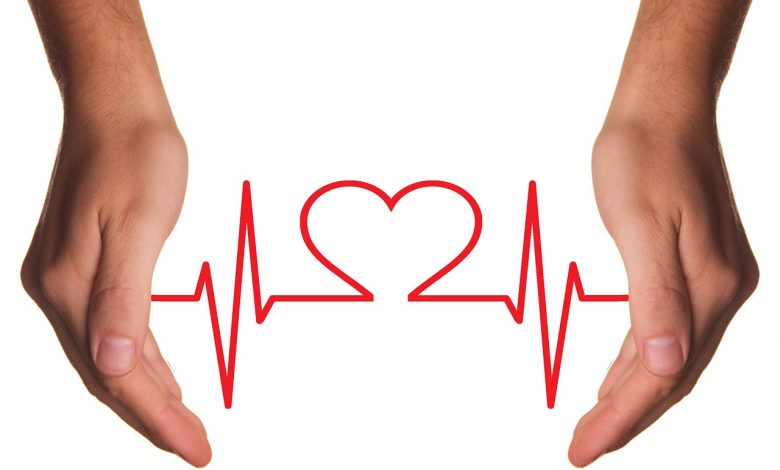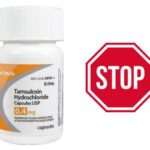How To Stop Taking Bisoprolol (Concor) Safely

Medication compliance or adherence refers to the degree or extent of conformity to the recommendations about day-to-day treatment by the provider with respect to the timing, dosage, and frequency. It may be defined as the extent to which a patient acts in accordance with the prescribed interval, and dose of a dosing regimen.
Adherence to therapies is a primary determinant of treatment success. Failure to adhere to the prescribed regimen is a serious problem that not only affects the patient but also the health care system. Medication non-adherence in patients leads to substantial worsening of disease, death, and increased health care costs.
What is bisoprolol?
Bisoprolol is used alone or in combination with other medications to treat high blood pressure. Bisoprolol is in a class of medications called beta-blockers. It works by relaxing blood vessels and slowing heart rate to improve and decrease blood pressure.
Bisoprolol is used alone or together with other medicines to treat high blood pressure (hypertension). High blood pressure adds to the workload of the heart and arteries. If it continues for a long time, the heart and arteries may not function properly. This can damage the blood vessels of the brain, heart, and kidneys, resulting in a stroke, heart failure, or kidney failure. High blood pressure may also increase the risk of heart attacks. These problems may be less likely to occur if blood pressure is controlled.
Bisoprolol is on the World Health Organization’s List of Essential Medicines. Bisoprolol is available as a generic medication. In 2017, it was the 268th most commonly prescribed medication in the United States, with more than one million prescriptions.
How should bisoprolol be used?
Bisoprolol comes as a tablet to take by mouth. It is usually taken once a day. To help you remember to take bisoprolol, take it around the same time every day. Follow the directions on your prescription label carefully, and ask your doctor or pharmacist to explain any part you do not understand. Take bisoprolol exactly as directed. Do not take more or less of it or take it more often than prescribed by your doctor.
Bisoprolol is typically taken as 2.5–10 mg by mouth once daily. It is possible to take up to 20 mg by mouth once daily if lower doses are not working well enough.
Your doctor will probably start you on a low dose of bisoprolol and gradually increase your dose. Bisoprolol Fumarate may be taken with or without food and should be swallowed whole with a drink of water. Do not take bisoprolol if you are pregnant or may be pregnant.
Bisoprolol controls high blood pressure but does not cure it. It may take a few weeks before you feel the full benefit of bisoprolol. Continue to take bisoprolol even if you feel well. Do not stop taking bisoprolol without talking to your doctor. Suddenly stopping bisoprolol may cause angina (chest pain), heart attack, or irregular heartbeat. Your doctor will probably decrease your dose gradually.
What are the side effects associated with using bisoprolol?
Bisoprolol may cause side effects. Tell your doctor if any of these symptoms are severe or do not go away:
• Dizziness
• Insomnia
• Slow, irregular heartbeats
• Upper respiratory infection
• Diarrhea
• Runny or stuffy nose
• Joint pain
• Cough
• Shortness of breath
• Nausea
• Sore throat
• Sinus infection (sinusitis)
• Vomiting
• Tiredness
• Drowsiness
• Lightheadedness upon standing
• Spinning sensation (vertigo)
• Dry mouth
• Stomach pain
• Constipation
• Increased urination
• Ringing in your ears
• Weakness
• Sleep problems (insomnia)
• Anxiety
• Restless feeling
• Muscle pain
• Itching or skin rash
• Loss of interest in sex
Less common side effects of bisoprolol include:
• Cold extremities
• Low blood pressure (hypotension)
• Depression
• Indigestion
• Bronchospasm
Rare but serious side effects of bisoprolol include:
• Very slow heartbeat
• Severe dizziness
• Fainting
• Blue fingers/toes
• Trouble breathing
• Mental/mood changes (such as confusion, mood swings, depression)
Other side effects of bisoprolol include:
• Aggravate congestive heart failure (CHF)
• Decrease HDL
• Hypertriglyceridemia
• Mask symptoms of low blood sugar (hypoglycemia)
• Decreased exercise tolerance
• Raynaud’s phenomenon
• May increase triglyceride levels and insulin resistance
This document does not contain all possible side effects and others may occur. Check with your physician for additional information about side effects.
Bisoprolol may cause other side effects. Call your doctor if you have any unusual problems while taking this medication.
If you experience a serious side effect, you or your doctor may send a report to the Food and Drug Administration’s (FDA) MedWatch Adverse Event Reporting program online (http://www.fda.gov/Safety/MedWatch) or by phone (1-800-332-1088).
How to stop taking bisoprolol safely
Do not stop taking a bisoprolol suddenly without consulting your doctor. This is important because when you take bisoprolol regularly, your body becomes used to it. Stopping it suddenly could cause problems such as palpitations, a recurrence of angina pain, or a rise in blood pressure. Studies have shown that abruptly stopping bisoprolol treatment can worsen your condition and may increase the risk of a heart attack.
The only way to safely stop the medication is by working with your doctor to reduce the dosage of bisoprolol gradually over a few weeks. Your doctor may also recommend possible alternatives to bisoprolol for people treating heart failure which can include carvedilol. The better beta-blocker will be the one that works best for you. Other factors may play a role in choosing a beta-blocker, such as cost, side effects, and other medications you may be taking.





